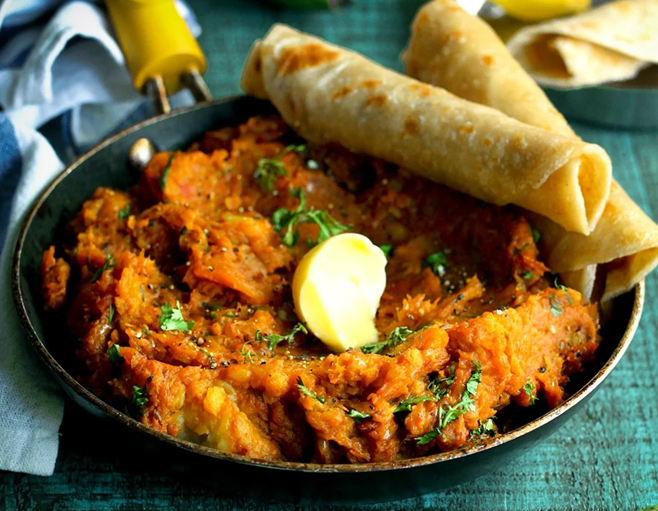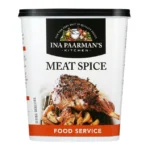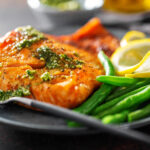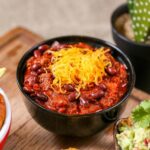Nestled along the western coast of Central Africa, Gabon is a country blessed with abundant natural resources and a rich culinary heritage. Gabonese cuisine reflects the country’s diverse ethnic groups and the availability of fresh ingredients from the lush rainforests and coastal waters. In this article, we will embark on a flavorful journey to discover the top 10 most eaten foods in Gabon, showcasing the country’s gastronomic delights.
- Plantains: Plantains are a staple food in Gabon and hold a significant place in the Gabonese diet. These starchy fruits, similar to bananas, are versatile and can be cooked in various ways. They are often boiled, fried, or roasted and served as a side dish or as part of traditional dishes. Plantains provide a substantial source of carbohydrates in Gabonese cuisine.
- Manioc (Cassava): Manioc, or cassava, is another essential food crop in Gabon. It is a root vegetable that is used in numerous dishes, both savory and sweet. Manioc is often pounded into a paste to make a traditional dish called “pondu,” which is made with ground cassava leaves and various seasonings. It is also used to make fufu, a dough-like staple that is served with stews and sauces.
- Mbika (Wild Spinach): Mbika, also known as wild spinach, is a popular leafy green vegetable in Gabonese cuisine. It is a nutritious and versatile ingredient that is used in a variety of dishes. Mbika is commonly cooked with other vegetables, meats, and seasonings to create flavorful stews and soups.
- Poulet Nyembwe (Chicken with Palm Nut Sauce): Poulet Nyembwe is a traditional Gabonese dish that features chicken cooked in a rich and creamy sauce made from palm nuts. The palm nut sauce is often flavored with spices and served with rice or plantains. This dish showcases the influence of indigenous ingredients and traditional cooking methods in Gabonese cuisine.
- Poisson Braisé (Grilled Fish): Given Gabon’s proximity to the Atlantic Ocean and its abundant fishing resources, grilled fish, or Poisson Braisé, is a beloved and widely consumed dish in the country. Freshly caught fish, such as tilapia or capitaine, is marinated in spices and grilled to perfection, resulting in a flavorful and succulent meal.
- Ekwang (Pounded Cocoyam): Ekwang is a traditional dish hailing from the Fang ethnic group in Gabon. It consists of pounded cocoyam leaves and grated cocoyam tubers, combined with palm nut sauce, smoked fish, and various spices. The mixture is wrapped in banana leaves and steamed, creating a unique and delicious dish with a distinct flavor.
- Okoume (Bushmeat): Bushmeat, known as Okoume in Gabon, refers to the meat of wild animals hunted in the forests. It includes various game animals such as antelopes, monkeys, and wild boars. While the consumption of bushmeat has raised concerns regarding sustainability and conservation, it remains a part of Gabonese culinary tradition, especially in rural areas.
- Maboké (Smoked Fish): Maboké is a traditional Gabonese dish that involves smoking fish over an open fire. The smoking process imparts a unique flavor to the fish, making it savory and aromatic. Smoked fish is commonly served with steamed or boiled cassava, plantains, or rice, creating a satisfying and flavorsome meal.
- Atanga (Palm Fruit Soup): Atanga is a popular soup in Gabon made from palm fruits. The palm fruits are cooked and pounded to extract the flavorful pulp, which is then simmered with various meats, vegetables, and spices. Atanga is often enjoyed with fufu or rice and is cherished for its rich, tangy taste.
- Gabonese Peanut Stew: Gabonese Peanut Stew, known as Mwamba in the local language, is a hearty and comforting dish. It combines meat (typically chicken or beef), vegetables, and peanuts to create a thick and flavorful stew. The peanuts lend a creamy texture and nutty taste to the dish, making it a favorite among Gabonese households.
The top 10 most eaten foods in Gabon reflect the country’s rich culinary heritage and the abundant natural resources found within its borders. From staple crops like plantains and manioc to traditional dishes like Poulet Nyembwe and Ekwang, Gabonese cuisine showcases a harmonious blend of indigenous ingredients, traditional cooking methods, and diverse cultural influences. Exploring these gastronomic delights allows us to appreciate the flavors and culinary traditions that have shaped Gabonese cuisine into a vibrant and enticing tapestry of tastes.








